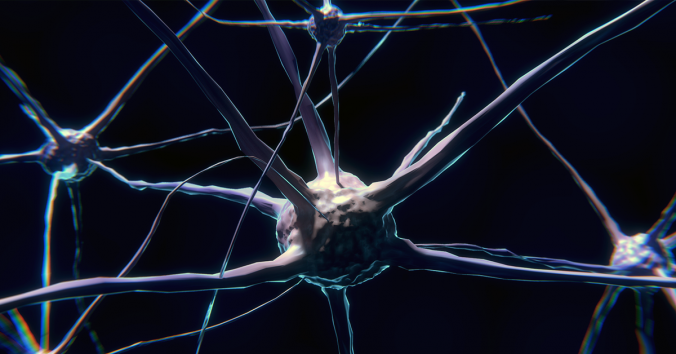Imagine if there was a reliable method for predicting and managing future risks, such as anything that could go wrong with new technology. Then we could responsibly steer clear of all future dangers, we could secure the future already now.
Of course, it is just a dream. If we had a “reliable method” for excluding future risks from the beginning, time would soon rush past that method, which then proved to be unreliable in a new era. Because we trusted the method, the method of managing future risks soon became a future risk in itself!
It is therefore impossible to secure the future from the beginning. Does this mean that we must give up all attempts to take responsibility for the future, because every method will fail to foresee something unpredictably new and therefore cause misfortune? Is it perhaps better not to try to take any responsibility at all, so as not to risk causing accidents through our imperfect safety measures? Strangely enough, it is just as impossible to be irresponsible for the future as it is to be responsible. You would need to make a meticulous effort so that you do not happen to cook a healthy breakfast or avoid a car collision. Soon you will wish you had a “safe method” that could foresee all the future dangers that you must avoid to avoid if you want to live completely irresponsibly. Your irresponsibility for the future would become an insurmountable responsibility.
Sorry if I push the notions of time and responsibility beyond their breaking point, but I actually think that many of us have a natural inclination to do so, because the future frightens us. A current example is the tendency to think that someone in charge should have foreseen the pandemic and implemented powerful countermeasures from the beginning, so that we never had a pandemic. I do not want to deny that there are cases where we can reason like that – “someone in charge should have…” – but now I want to emphasize the temptation to instinctively reason in such a way as soon as something undesirable occurs. As if the future could be secured already from the beginning and unwanted events would invariably be scandals.
Now we are in a new situation. Due to the pandemic, it has become irresponsible not to prepare (better than before) for risks of pandemics. This is what our responsibility for the future looks like. It changes over time. Our responsibility rests in the present moment, in our situation today. Our responsibility for the future has its home right here. It may sound irresponsible to speak in such a way. Should we sit back and wait for the unwanted to occur, only to then get the responsibility to avoid it in the future? The problem is that this objection once again pushes concepts beyond their breaking point. It plays around with the idea that the future can be foreseen and secured already now, a thought pattern that in itself can be a risk. A society where each public institution must secure the future within its area of responsibility, risks kicking people out of the secured order: “Our administration demands that we ensure that…, therefore we need a certificate and a personal declaration from you, where you…” Many would end up outside the secured order, which hardly secures any order. And because the trouble-makers are defined by contrived criteria, which may be implemented in automated administration systems, these systems will not only risk making systematic mistakes in meeting real people. They will also invite cheating with the systems.
So how do we take responsibility for the future in a way that is responsible in practice? Let us first calm down. We have pointed out that it is impossible not to take responsibility! Just breathing means taking responsibility for the future, or cooking breakfast, or steering the car. Taking responsibility is so natural that no one needs to take responsibility for it. But how do we take responsibility for something as dynamic as research and innovation? They are already in the future, it seems, or at least at the forefront. How can we place the responsibility for a brave new world in the present moment, which seems to be in the past already from the beginning? Does not responsibility have to be just as future oriented, just as much at the forefront, since research and innovation are constantly moving towards the future, where they make the future different from the already past present moment?
Once again, the concepts are pushed beyond their breaking point. Anyone who reads this post carefully can, however, note a hopeful contradiction. I have pointed out that it is impossible to secure the future already now, from the beginning. Simultaneously, I point out that it is in the present moment that our responsibility for the future lies. It is only here that we take responsibility for the future, in practice. How can I be so illogical?
The answer is that the first remark is directed at our intellectual tendency to push the notions of time and responsibility beyond their limits, when we fear the future and wish that we could control it right now. The second remark reminds us of how calmly the concepts of time and responsibility work in practice, when we take responsibility for the future. The first remark thus draws a line for the intellect, which hysterically wants to control the future totally and already from the beginning. The second remark opens up the practice of taking responsibility in each moment.
When we take responsibility for the future, we learn from history as it appears in current memory, as I have already indicated. The experiences from the pandemic make it possible at present to take responsibility for the future in a different way than before. The not always positive experiences of artificial intelligence make it possible at present to take better responsibility for future robotics. The strange thing, then, is that taking responsibility presupposes that things go wrong sometimes and that we are interested in the failures. Otherwise we had nothing to learn from, to prepare responsibly for the future. It is really obvious. Responsibility is possible only in a world that is not fully secured from the beginning, a world where the undesirable happens. Life is contradictory. We can never purify security according to the one-sided demands of the intellect, for security presupposes the uncertain and the undesirable.
Against this philosophical background, I would like to recommend an article in the Journal of Responsible Innovation, which discusses responsible research and innovation in a major European research project, the Human Brain Project (HBP): From responsible research and innovation to responsibility by design. The article describes how one has tried to be foresighted and take responsibility for the dynamic research and innovation within the project. The article reflects not least on the question of how to continue to be responsible even when the project ends, within the European research infrastructure that is planned to be the project’s product: EBRAINS.
The authors are well aware that specific regulated approaches easily become a source of problems when they encounter the new and unforeseen. Responsibility for the future cannot be regulated. It cannot be reduced to contrived criteria and regulations. One of the most important conclusions is that responsibility from the beginning needs to be an integral part of research and innovation, rather than an external framework. Responsibility for the future requires flexibility, openness, anticipation, engagement and reflection. But what is all that?
Personally, I want to say that it is partly about accepting the basic ambiguity of life. If we never have the courage to soar in uncertainty, but always demand security and nothing but security, we will definitely undermine security. By being sincerely interested in the uncertain and the undesirable, responsibility can become an integral part of research and innovation.

Written by…
Pär Segerdahl, Associate Professor at the Centre for Research Ethics & Bioethics and editor of the Ethics Blog.
Bernd Carsten Stahl, Simisola Akintoye, Lise Bitsch, Berit Bringedal, Damian Eke, Michele Farisco, Karin Grasenick, Manuel Guerrero, William Knight, Tonii Leach, Sven Nyholm, George Ogoh, Achim Rosemann, Arleen Salles, Julia Trattnig & Inga Ulnicane. From responsible research and innovation to responsibility by design. Journal of Responsible Innovation. (2021) DOI: 10.1080/23299460.2021.1955613
Approaching future issues










